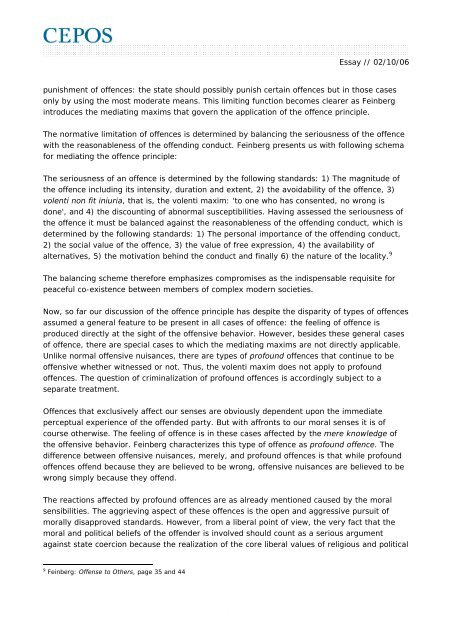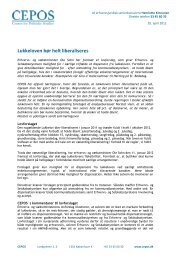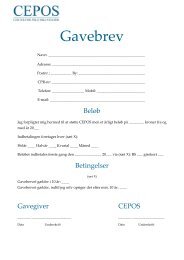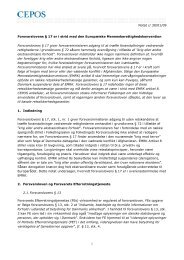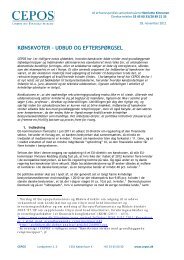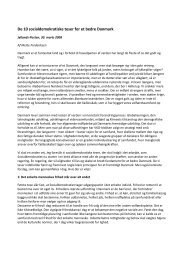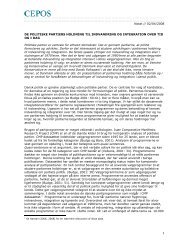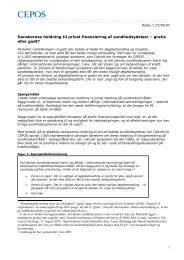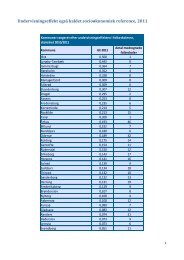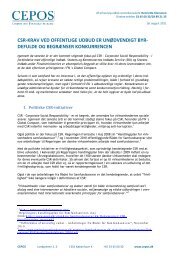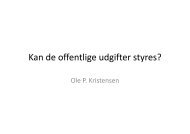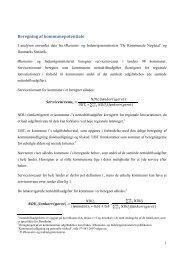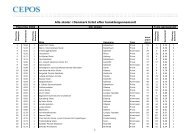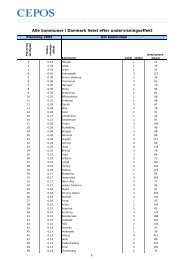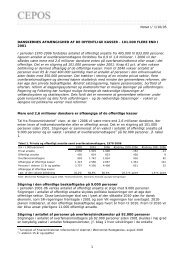FREEDOM OF SPEECH: HALAL OR HARAM - Cepos
FREEDOM OF SPEECH: HALAL OR HARAM - Cepos
FREEDOM OF SPEECH: HALAL OR HARAM - Cepos
You also want an ePaper? Increase the reach of your titles
YUMPU automatically turns print PDFs into web optimized ePapers that Google loves.
Essay // 02/10/06punishment of offences: the state should possibly punish certain offences but in those casesonly by using the most moderate means. This limiting function becomes clearer as Feinbergintroduces the mediating maxims that govern the application of the offence principle.The normative limitation of offences is determined by balancing the seriousness of the offencewith the reasonableness of the offending conduct. Feinberg presents us with following schemafor mediating the offence principle:The seriousness of an offence is determined by the following standards: 1) The magnitude ofthe offence including its intensity, duration and extent, 2) the avoidability of the offence, 3)volenti non fit iniuria, that is, the volenti maxim: 'to one who has consented, no wrong isdone', and 4) the discounting of abnormal susceptibilities. Having assessed the seriousness ofthe offence it must be balanced against the reasonableness of the offending conduct, which isdetermined by the following standards: 1) The personal importance of the offending conduct,2) the social value of the offence, 3) the value of free expression, 4) the availability ofalternatives, 5) the motivation behind the conduct and finally 6) the nature of the locality. 9The balancing scheme therefore emphasizes compromises as the indispensable requisite forpeaceful co-existence between members of complex modern societies.Now, so far our discussion of the offence principle has despite the disparity of types of offencesassumed a general feature to be present in all cases of offence: the feeling of offence isproduced directly at the sight of the offensive behavior. However, besides these general casesof offence, there are special cases to which the mediating maxims are not directly applicable.Unlike normal offensive nuisances, there are types of profound offences that continue to beoffensive whether witnessed or not. Thus, the volenti maxim does not apply to profoundoffences. The question of criminalization of profound offences is accordingly subject to aseparate treatment.Offences that exclusively affect our senses are obviously dependent upon the immediateperceptual experience of the offended party. But with affronts to our moral senses it is ofcourse otherwise. The feeling of offence is in these cases affected by the mere knowledge ofthe offensive behavior. Feinberg characterizes this type of offence as profound offence. Thedifference between offensive nuisances, merely, and profound offences is that while profoundoffences offend because they are believed to be wrong, offensive nuisances are believed to bewrong simply because they offend.The reactions affected by profound offences are as already mentioned caused by the moralsensibilities. The aggrieving aspect of these offences is the open and aggressive pursuit ofmorally disapproved standards. However, from a liberal point of view, the very fact that themoral and political beliefs of the offender is involved should count as a serious argumentagainst state coercion because the realization of the core liberal values of religious and political9 Feinberg: Offense to Others, page 35 and 446


